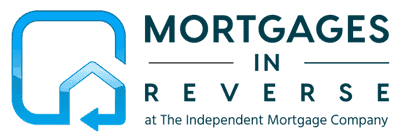Imagine you're a retiree living in Vancouver, weighing the pros and cons of a reverse mortgage versus a traditional loan in order to supplement your retirement income.
On one hand, a reverse mortgage offers the allure of converting home equity into cash without a monthly payment burden.
On the other hand, a traditional loan offers the familiarity of set payments with an end in sight.
As you contemplate these options, you're left wondering, 'Which is the right choice for me?' This is a question that may require a deeper exploration into the intricacies of both financial tools.
Key Takeaways
- Reverse mortgages provide a steady income stream for Vancouver homeowners aged 55+ without requiring regular repayments.
- Traditional loans offer a predictable repayment schedule but may require a good credit score and impose higher initial interest rates.
- Vancouverites' choice between traditional loans and reverse mortgages should be guided by their retirement plans and financial stress levels.
- The type of loan selected can significantly impact the home's value for heirs, so this should also be a key consideration.
Understanding Reverse Mortgages
A considerable number of Vancouverites mightn't fully grasp the concept of reverse mortgages, so let's delve into the nitty-gritty of this unique financial instrument designed for seniors. Unlike traditional loans, reverse mortgages allow homeowners aged 55 or older to convert part of their home equity into tax-free cash, without having to sell their home or make regular loan payments.
Now, let's focus on the 'Eligibility Criteria.' To qualify, you must own your home outright or have a low mortgage balance that can be paid off during the closing process. Your home must be your primary residence. Moreover, you'll need to demonstrate that you can afford to maintain your home and pay property taxes and insurance.
'Repayment Methods' for reverse mortgages are also different. You're not required to make monthly payments. Instead, the loan is repaid when you sell your home, move out permanently or pass away. The repayment amount can't exceed the fair market value of your home. If the home sells for more than the loan amount, the excess goes to you or your heirs. This financial tool can be a lifesaver for seniors, but it's essential to understand the details before diving in.
The Basics of Traditional Loans
Shifting gears to traditional loans, you'll find that they're a different ballgame altogether, requiring monthly repayments and a rigid structure that mightn't offer the flexibility of a reverse mortgage. With traditional loans, your ability to borrow is generally determined by your credit score and income.
Here are three central aspects to consider when understanding traditional loans:
- Loan Types: There are various types of traditional loans such as personal loans, auto loans, or mortgages. Each type has its own unique terms and conditions. For instance, a mortgage is a secured loan tied to your property, while a personal loan is usually unsecured and could be used for a variety of purposes.
- Interest Rates: The cost of borrowing is determined by the interest rate, which can be either fixed or variable. Fixed-rate loans have the same interest rate over the loan term, offering predictability. Variable rate loans, on the other hand, can change over time based on market conditions.
- Repayment Terms: Traditional loans require monthly repayments over a specified term. These repayments typically include both principal and interest.
Pros and Cons of Reverse Mortgages
Let's dive into an exploration of the pros and cons of reverse mortgages, as they present a unique set of advantages and drawbacks that could significantly impact your financial landscape.
On the upside, a reverse mortgage provides you with a steady stream of income during your retirement years. This is money you can use for daily expenses or unforeseen emergencies, without having to sell your home or tap into other savings. Moreover, the Interest Rates Impact is typically less severe than with traditional loans, as the rate is often fixed for the life of the loan.
However, there are also some Reverse Mortgage Misconceptions that need to be clarified. One of the main drawbacks is that the loan balance increases over time as interest and fees accumulate. This could potentially eat into what you leave for your heirs. Also, you're required to maintain and live in your home, which means you could face foreclosure if you're unable to meet those obligations.
All in all, it's essential to weigh these pros and cons diligently before deciding if a reverse mortgage is the right move for you.
Pros and Cons of Traditional Loans
Navigating the world of traditional loans, you're likely to encounter a distinct set of benefits and drawbacks that can influence your financial decisions. A key advantage is the predictability of a fixed repayment schedule. You know exactly what you're paying each month, making budgeting simpler.
However, not everything is smooth sailing. The three main drawbacks of traditional loans include:
- Loan qualification: Traditional loans generally require a good credit score. If you've had financial difficulties in the past, you might struggle to qualify.
- Interest rates: While fixed rates provide predictability, they're often higher than variable rates at the start. Over time, this could cost you more.
- Lack of flexibility: Traditional loans don't typically allow for changes to your payment schedule or loan amount once set.
These considerations are crucial when deciding between traditional loans and alternatives like reverse mortgages. It's all about finding what fits your situation best. Remember, while traditional loans may be the norm, they aren't the only option. Carefully weigh up the pros and cons, and you'll be better equipped to make a sound financial decision.
Evaluating Your Financial Needs
Understanding your unique financial needs is the next essential step after weighing the pros and cons of traditional loans. It's not just about which loan type looks the most appealing—it's about what fits your financial situation.
Retirement planning plays a huge role in this decision. Are you looking to secure a comfortable future, free from financial stress? A reverse mortgage might be for you. This loan type allows you to tap into your home's equity, providing a steady flow of income during retirement. It can be an excellent tool if you've substantial equity in your home and need additional income sources.
Debt management is another critical factor to consider. If you're struggling with high-interest debts, a traditional loan could be more beneficial. You can use it to consolidate your debts, potentially securing a lower interest rate and making your payments more manageable.
Don't forget to consider your home's future too. If you plan to leave it to your heirs, a traditional loan might be a better fit, as a reverse mortgage could significantly reduce the home's value after your passing.
Frequently Asked Questions
How Does the Process of Getting a Reverse Mortgage or a Traditional Loan Differ in Vancouver Compared to the Rest of Canada?
In Vancouver, you'll find the process for obtaining both a reverse mortgage and a traditional loan is quite similar to the rest of Canada. Your loan eligibility depends on your credit score, income, and property value.
However, Vancouver's high property values might influence the mortgage rates you're offered. But, it's best to consult with a financial advisor to understand the specifics.
Are There Specific Local or Federal Laws in Vancouver That Affect the Terms of a Reverse Mortgage or Traditional Loan?
You'll find that Vancouver's lending rates and mortgage tax implications can greatly affect your loan terms. Local laws in Vancouver, such as the Property Transfer Tax, can impact traditional loans more than federal laws.
On the other hand, reverse mortgages are heavily influenced by federal laws like the National Housing Act. It's important you're aware of these specific laws when considering a loan in Vancouver.
What Are Some Local Resources in Vancouver for Getting Advice or Assistance With Reverse Mortgages and Traditional Loans?
You're looking for local resources in Vancouver to help with reverse mortgages and traditional loans, right?
It's crucial to understand Vancouver specific loan misconceptions. Utilizing local financial advisors can be beneficial. They're well-versed in the local laws, can help you navigate through the complex loan process, and can clear any misconceptions.
Reach out to them to get accurate, detailed, and personalized advice. Don't let confusion hinder your financial decisions.
In What Ways Does the Real Estate Market in Vancouver Influence the Decision Between a Reverse Mortgage and a Traditional Loan?
Vancouver's volatile real estate market greatly influences your choice between reverse mortgages and traditional loans. The ongoing Vancouver housing crisis pushes property prices up, affecting loan interests.
If you're dealing with high property values, a reverse mortgage might be enticing. However, interest rate trends are equally vital. Rising rates could make traditional loans more expensive, while stable or falling rates might favor them.
Analyze these factors carefully to make an informed decision.
How Does the Demographic and Economic Profile of Vancouver Residents Affect Their Choice Between Reverse Mortgages and Traditional Loans?
As a Vancouverite, your choice between a reverse mortgage and a traditional loan is influenced by Vancouver's aging population and rising living costs.
If you're older, you might lean towards a reverse mortgage, leveraging your home's equity for income. However, with living costs on the rise, younger residents may opt for traditional loans to manage expenses.
It's all about assessing your demographic and economic circumstances to make the right decision.

